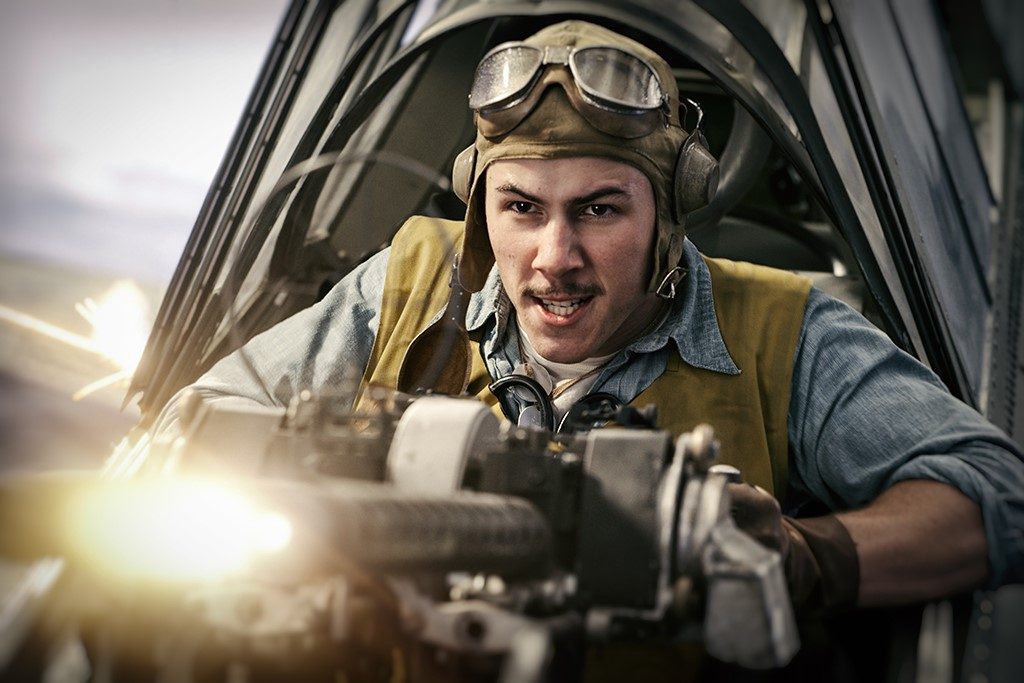Read also:
How to Watch FX Live Without CableHow To Watch AMC Without CableHow to Watch ABC Without CableHow to Watch Paramount Network Without CableRoland Emmerich’s dull, misguided World War II epic tries to mask its Pacific-sized flaws in the cloak of patriotism.
If there’s one thing Midway has in spades, it’s reverence for the troops. Baked into every frame of Roland Emmerich‘s 138-minute-long recounting of America’s involvement in the Pacific War during World War II is a fawning respect for the real men (and, as the movie makes clear, it’s mostly men) who fought Japan and helped win the war. Most historical dramas use the phrase “based on true events”; Midway opens with the phrase, “This is a true account.” By all indicators, Midway does its level best to tell the story like it is; too bad that results in an unfocused, sleepy mess of a war movie that can’t quite get its sea legs under it.
While the film certainly climaxes in the titular Battle of Midway — where America won a huge naval victory over Japan and signaled their true arrival on the battlefields of WWII — Emmerich tracks the broad strokes of the US involvement in the Pacific front, from the Japanese sneak attack on Pearl Harbor to Doolittle’s Raid and beyond. In covering such broad ground, though, we have to juggle a thousand different characters, all based on real people but here relegated to stoic cardboard cutouts.
For most of our action, we follow the crew of the USS Enterprise, including hotshot Navy pilots Dick Best (Ed Skrein) and Clarence Earle Dickinson (Luke Kleintank); gruff squadron commander Wade McClusky (Luke Evans); gravelly Admiral “Bull” Halsey (Dennis Quaid); machinist Bruno Gaido (Nick Jonas), and more. But Emmerich also flits between other subplots, like codebreaker Edwin Layton’s (Patrick Wilson) attempts to predict the Japanese fleet’s next moves for Admiral Nimitz (Woody Harrelson), or brief looks at the Japanese side of the conflict through Tadanobu Asano‘s Admiral Yamaguchi and Etsushi Toyokawa‘s Admiral Yamamoto. Much like the big-budget ensemble war movies of the ’60s, and ’70s, Midway boasts a lot of stars but doesn’t give them much to do but be generally competent at their jobs.

Because it’s got so much to fit into the course of just over two hours, Midway flits by at a Zero’s pace, playing musical chairs with all of these characters to the point where you barely get an idea of what their personalities might be, much less give the performers time to eke out anything resembling genuine emotion. As Best, Skrein gets little more to do than chew gum, crack wise and pal around with best-bud Kleintank, and Wilson only gets enough time to furrow his brow and lament that no one listened to him about Pearl Harbor. There isn’t a single non-expository line of dialogue throughout Wes Tooke’s bloated script; characters are just chess pieces to move around to demonstrate the collective action of two navies in wartime.
The scattershot nature of the script (and the heavy presence of Chinese co-producers, as Midway‘s many production logos indicate) feels most egregious when the film effectively stops its forward action for a good twenty minutes to detour into the tale of Doolittle’s Raid — in which Army pilot James Doolittle (Aaron Eckhart) led a bombing run into Tokyo, only to have to bail out in the South China Sea and be hidden by Chinese villagers. It’s a sequence as baffling as it is incongruous: Eckhart just pops up out of nowhere to lead the film for a single reel, never to be seen again until a post-script title card makes clear the atrocities the Chinese endured at the hands of the Japanese for helping him avoid capture.
Charitably, one could argue that these moments are meant to evoke the kind of collective effort America had to put into winning the war, about how every soldier had to work together and put aside their differences to act as a whole. But without a strong core of personality, these real-life war heroes just feel like baffling celebrity cameos, especially in the case of Jonas and Darren Criss‘ blink-and-you-miss-him turn as a cocksure Navy pilot. And, as always, Emmerich can’t help but include some obnoxious side characters, like a cartoonishly dunder-headed take on John Ford (Geoffrey Blake), who turned his cameras to the real-life Battle of Midway and ended up using the footage in his iconic 1942 documentary of the same name. But like most characters in this mess, he has maybe three lines before we never see him again.
Without a strong core of personality, these real-life war heroes just feel like baffling celebrity cameos.
To its mild credit, Emmerich shoots the dogfights with a modicum of narrative coherence we don’t often see in the frenzied action of modern blockbusters, even if the effects feel dodgy even by the standards of 2001’s Pearl Harbor. Watching Zeroes and TBD Devastators bob and weave around mountains evading gunfire, or engage in the flak-filled guessing games of dive-bombing runs, is the closest Midway comes to true excitement, albeit in a Playstation 3 kind of way.
But then the film draws to a close, and the over-reverent score from Thomas Wander and Harald Kloser swells to a climax, as epilogue text lets us know what happened to each of the real-life war heroes highlighted in Midway. It’s there we realize the film’s true purpose: a treacly, uncomplicated batch of mediocre war spectacle packaged and released just in time for Veteran’s Day weekend. It doesn’t really matter whether it’s any good or not: it worships at the altar of The Greatest Generation, and for many that will be enough. It’s the ultimate dad (or in this case, granddad) movie of 2019 — or would be, if Ford v. Ferrari wasn’t coming up on Midway‘s six.
Midway straps into the cockpit and douses theater screens in CG gunfire November 8th.